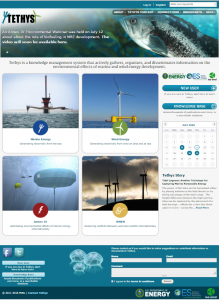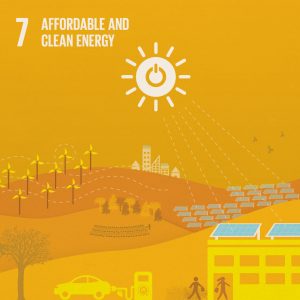Post contributed by Matt Preisser, Office of Sustainability Intern
Last summer I had the opportunity to work at the Pacific Northwest National Laboratory in Seattle, Washington as a part of the Department of Energy’s Science Undergraduate Laboratory Internship (SULI) program. For 10 weeks, I worked in the Coastal Science Division to understand the environmental effects of marine renewable energy.
Marine renewable energy is energy that is harnessed from marine environments, either through the movement of tides, waves, and currents or through differences in temperature or salinity. This is an emerging market all around the world, but it is unclear how these devices effect the environment that they are placed in.

The Tethys website helps researchers and policy makers access data and information on marine energy from around the world.
My specific work involved the online resource Tethys. This website is designed to facilitate the exchange of information and data on the environmental effects of marine renewable energy (and wind energy), as well as serve as a commons for practitioners to enhance the connectedness of the industry. One of the main functions of Tethys is the “Knowledge Base,” which is a collection of reports, papers, metadata, presentations, and other relevant documents that relate to the marine or wind energy industry.
The bulk of my research involved understanding how international cooperation can further the overall industry. By analyzing geolocation data, I was able to compare where the majority of research is coming from and who was viewing Tethys to identify potential future markets. Since this is an emerging market, there are many different institutes around the world working towards the common goal of furthering the acceptance and use of marine renewable energy. It is important for these countries to come together and share knowledge, so the market and public acceptance can continue to grow. This idea is the same for sustainability, and if we all work together and share ideas we can further our progress on a global scale.
This internship was a fantastic experience that I would recommend to anyone interested in working for a national laboratory or for doing research based work. I was exposed to many new ideas and technologies about renewable energy, and environmental protection. The people and other interns that I had the chance to work with came from many different backgrounds and I was able to gain a valuable experience that will continue to help me grow in the environmental energy field.
Learn about the SDGs & AU and our contributions related to this post.





